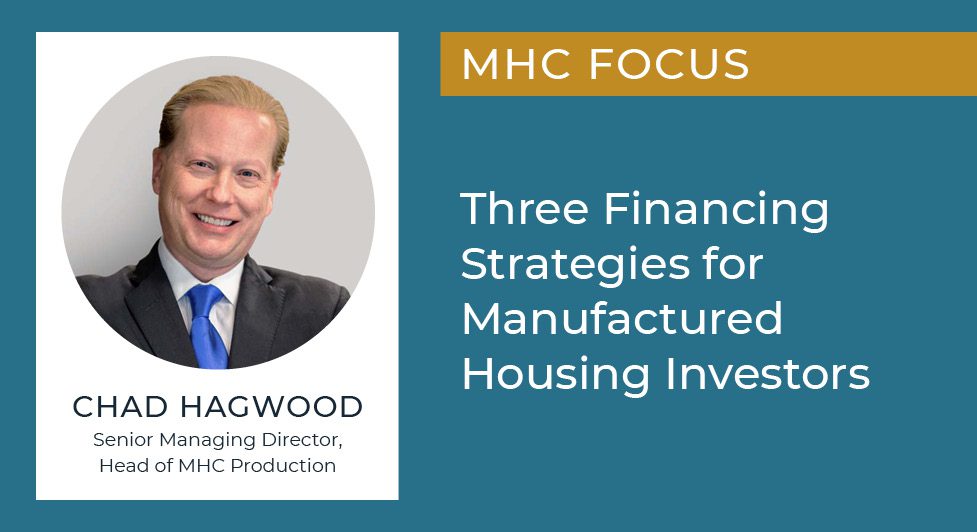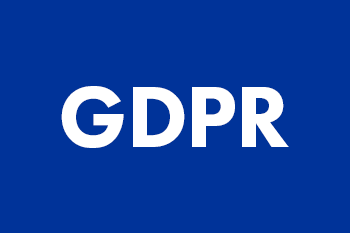This is part one of a six-part series on MHC insights and strategies by Chad Hagwood.
Investment opportunities are ripening as manufactured housing communities become an even hotter commodity.
Given their relatively low costs, eco-friendly designs, and affordability, manufactured housing community (MHC) assets have become a vital part of the U.S. housing market. That’s especially true as the real estate industry grapples with issues ranging from rising interest rates and insurance premiums to supply chain setbacks and labor shortages.
According to the Manufactured Housing Institute, MHC shipments have increased 12% from 2020 to 2021, with 112,882 manufactured homes produced in 2022 alone. Now, as investor demand for MHCs steadily rises, the market is poised for further growth. We’re seeing this firsthand at Lument, where we’ve been actively closing deals with clients across the nation.
For MHC owners and investors, particularly those new to the industry, there are important ground rules and formulas to keep in mind with interest rates, cap rates, and loan-to-value (LTV) ratios. Here’s a closer look at how to make sure the numbers pencil out for all parties.
Know Which Rate to Elevate for Better Leverage
Rule number one: MHC owners and investors looking to maximize their financing options should always focus on avoiding negative leverage, which occurs when the mortgage interest rate exceeds the cap rate or cash-on-cash return. Given the preponderance of floating rate, short-term bridge financing for MHC acquisitions, and the rapid rise of rates, this rule is more important than ever.
That may seem like a tall order given today’s demand for MHC product; top-tier manufactured home communities routinely generate lower cap rates than other commercial real estate assets such as multifamily. Overall, MHC cap rates were hovering above 6%, on average, for transactions nationally closed in the fourth quarter of 2022. Many a borrower has quickly found themselves in a negative leverage position, especially those with parks in lease-up, due to poorly structured adjustable-rate loans with rates that are increasing month over month.
A safe guideline for MHC sponsors seeking new financing is to keep their cap rates at least one point above their interest rates to achieve maximum leverage. If the interest on a loan is higher than the cap rate on the property in need of new acquisition financing, borrowers will be hard-pressed to find a lender that can make the numbers work with an LTV above the 65% range.
Both agency and non-agency lenders will always size up the LTV and the debt service coverage ratio (DSCR) on an MHC property to determine final proceeds. With today’s rates, most deals are DSCR constrained.
Keep Rates in Mind, but be Aware of Tightening Underwriting
Rule number two: Borrowers wondering when interest rates will normalize need to come to terms with the fact that rates are normal right now. The most important factor for borrowers to keep an eye on today is the state of MHC loan underwriting.
As far as rates are concerned, the past five years were the outlier, not today’s rates. In the mid- to late-1990s, when the MHC financing business was in its infancy, interest rates were often in the low double digits and there were very few financing options for community owners. The business has evolved dramatically since then.
Overall, underwriting remains very favorable for borrowers and debt coverage requirements are still aggressive. Tighter underwriting (i.e., a lender moving its DSCR from 1.25x to 1.35x) has a far greater impact on a sponsor’s proceeds than a 25-basis point increase in rates. Don’t be surprised if you see tighter underwriting standards a year from now.
Seize the Moment with a Reliable Lending Partner
Rule number three: Find the right markets and opportunities and act before market conditions become even more difficult to navigate.
There have been countless MHC “experts” entering the market in the past five years, many of whom have only seen values go up and rates go down. A lot of people can make a deal work at a 3.00% rate, however making it work at a 7.00% is a different game altogether. Experience matters and dealing with someone who knows both the ups and downs of the industry is the wise choice. Additionally, nuances matter, and working with a lender that knows those nuances will benefit the borrower.
If additional rate hikes come down the pike, as the Federal Reserve has indicated, borrowers have numerous options to lock in stable financing today before loan costs increase even further.
As underwriting standards get tighter due to liquidity constraints and market concerns, a knowledgeable relationship lender will move the needle for many MHC borrowers going forward.
Mobile home communities have withstood tough times before and remain an excellent recession-proof option for owners and investors in virtually any economic climate. The right financing and deal terms only accentuate this resilience.
Lument offers a range of financing products—including conventional five- to 10-year mortgages, agency loans, and short-term bridge loans—all of which can be used to acquire and refinance MHC assets across the country. We’re nimble and well-resourced ensuring transactions close as smoothly and quickly as possible.


